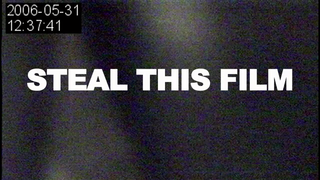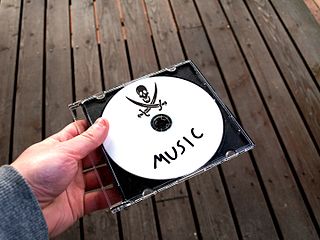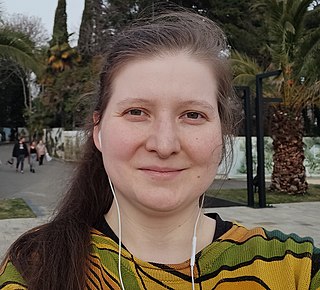Related Research Articles

Criticism of copyright, or anti-copyright sentiment, is a dissenting view of the current state of copyright law or copyright as a concept. Critics often discuss philosophical, economical, or social rationales of such laws and the laws' implementations, the benefits of which they claim do not justify the policy's costs to society. They advocate for changing the current system, though different groups have different ideas of what that change should be. Some call for remission of the policies to a previous state—copyright once covered few categories of things and had shorter term limits—or they may seek to expand concepts like fair use that allow permissionless copying. Others seek the abolition of copyright itself.
Piratbyrån was a Swedish think tank established to support the free sharing of information, culture, and intellectual property. Piratbyrån provided a counterpoint to lobby groups such as the Swedish Anti-Piracy Bureau.

The Pirate Bay is an online index of digital content of entertainment media and software. Founded in 2003 by Swedish think tank Piratbyrån, The Pirate Bay allows visitors to search, download, and contribute magnet links and torrent files, which facilitate peer-to-peer file sharing among users of the BitTorrent protocol.
The Federation Against Copyright Theft (FACT) is a British organisation established in 1983 to protect and represent the interests of its members' intellectual property (IP). FACT also investigates fraud and cybercrime, and provides global due diligence services to support citizenship investment and trade, business, financial and legal compliance.

Steal This Film is a film series documenting the movement against intellectual property directed by Jamie King, produced by The League of Noble Peers and released via the BitTorrent peer-to-peer protocol.

Good Copy Bad Copy is a 2007 documentary film about copyright and culture in the context of Internet, peer-to-peer file sharing and other technological advances, directed by Andreas Johnsen, Ralf Christensen, and Henrik Moltke. It features interviews with many people with various perspectives on copyright, including copyright lawyers, producers, artists and filesharing service providers.

Peter Sunde Kolmisoppi, alias brokep, is a Swedish entrepreneur and politician. He is best known for being a co-founder and ex-spokesperson of The Pirate Bay, an illegal BitTorrent search engine. He is an equality advocate and has expressed concerns over issues of centralization of power to the European Union in his blog. Sunde also participates in the Pirate Party of Finland and describes himself as a socialist. In April 2017, Sunde founded Njalla, a privacy oriented domain name registrar, hosting provider and VPN provider.

"You Wouldn't Steal a Car" is the first sentence of a public service announcement that debuted on July 27, 2004, which was part of the anti-copyright infringement campaign "Piracy. It's a crime." It was created by the Federation Against Copyright Theft and the Motion Picture Association of America in cooperation with the Intellectual Property Office of Singapore, and appeared in theaters internationally from 2004 until 2007, and on many commercial DVDs during the same period as a clip before the main menu or other previews appear, as either an unskippable or skippable video.

Copyright infringement is the use of works protected by copyright without permission for a usage where such permission is required, thereby infringing certain exclusive rights granted to the copyright holder, such as the right to reproduce, distribute, display or perform the protected work, or to make derivative works. The copyright holder is typically the work's creator, or a publisher or other business to whom copyright has been assigned. Copyright holders routinely invoke legal and technological measures to prevent and penalize copyright infringement.

The Pirate Bay raid took place on 31 May 2006 in Stockholm, when The Pirate Bay, a Swedish website that indexes torrent files, was raided by Swedish police, causing it to go offline for three days. Upon reopening, the site's number of visitors more than doubled, the increased popularity attributed to greater exposure through the media coverage, which is an example of the Streisand effect.

The Pirate Bay trial was a joint criminal and civil prosecution in Sweden of four individuals charged for promoting the copyright infringement of others with the torrent tracking website The Pirate Bay. The criminal charges were supported by a consortium of intellectual rights holders led by the International Federation of the Phonographic Industry (IFPI), who filed individual civil compensation claims against the owners of The Pirate Bay.

TPB AFK: The Pirate Bay Away From Keyboard is a 2013 Swedish documentary film directed and produced by Simon Klose. It focuses on the lives of the three founders of The Pirate Bay – Peter Sunde, Fredrik Neij, and Gottfrid Svartholm – and the Pirate Bay trial. Filming began sometime in 2008, and concluded on 28 February 2012.

Music piracy is the copying and distributing of recordings of a piece of music for which the rights owners did not give consent. In the contemporary legal environment, it is a form of copyright infringement, which may be either a civil wrong or a crime depending on jurisdiction. The late 20th and early 21st centuries saw much controversy over the ethics of redistributing media content, how much production and distribution companies in the media were losing, and the very scope of what ought to be considered piracy – and cases involving the piracy of music were among the most frequently discussed in the debate.
Torrent poisoning is intentionally sharing corrupt data or data with misleading file names using the BitTorrent protocol. This practice of uploading fake torrents is sometimes carried out by anti-infringement organisations as an attempt to prevent the peer-to-peer (P2P) sharing of copyrighted content, and to gather the IP addresses of downloaders.
VODO was an online media distributor offering films, books, games and music under pay-what-you-want pricing models. Founded by film director Jamie King, VODO has recently focused on bundle offers, bringing together a variety of creators under the themes of H.P. Lovecraft, Big Brother, NSFW, Otherworlds (sci-fi) and Really Creepy.

Library Genesis (LibGen) is a file-sharing based shadow library website for scholarly journal articles, academic and general-interest books, images, comics, audiobooks, and magazines. The site enables free access to content that is otherwise paywalled or not digitized elsewhere. LibGen describes itself as a "links aggregator", providing a searchable database of items "collected from publicly available public Internet resources" as well as files uploaded "from users".

Sci-Hub is a shadow library website that provides free access to millions of research papers, regardless of copyright, by bypassing publishers' paywalls in various ways. Unlike Library Genesis, it does not provide access to books. Sci-Hub was founded in Kazakhstan by Alexandra Elbakyan in 2011, in response to the high cost of research papers behind paywalls. The site is extensively used worldwide. In September 2019, the site's operator(s) said that it served approximately 400,000 requests per day. In addition to its intensive use, Sci-Hub stands out among other shadow libraries because of its easy use/reliability and because of the enormous size of its collection: a 2018 study estimated that Sci-Hub provided access to 95% of all scholarly publications with issued DOI numbers, and on 15 July 2022 Sci-Hub reported that its collection comprises 88,343,822 files.

Alexandra Asanovna Elbakyan is a Kazakhstani computer programmer and creator of the website Sci-Hub, which provides free access to research papers without regard for copyright. According to a study published in 2018, Sci-Hub provides access to nearly all scholarly literature.

Jamie King is a British filmmaker, writer, and activist, best known for directing Steal This Film, a documentary that observes intellectual property in favour of P2P filesharing. He is also the founder of VODO, an online crossmedia distribution project for film, games, books, and music. Ted Hope described King as one of the "great free thinkers of Indie film." He is currently host of the podcast STEAL THIS SHOW, produced in conjunction with TorrentFreak.
Shadow libraries are online databases of readily available content that is normally obscured or otherwise not readily accessible. Such content may be inaccessible for a number of reasons, including the use of paywalls, copyright controls, or other barriers to accessibility placed upon the content by its original owners. Shadow libraries usually consist of textual information as in electronic books, but may also include other digital media, including software, music, or films.
References
- ↑ "Steal This Film". Post.Thing. The Thing. Retrieved 20 March 2016.
- ↑ "Steal This Film: Thanks : )". 25 August 2006. Archived from the original on 2008-09-06. Retrieved 20 June 2008.
- ↑ King, Jamie (12 April 2006). "Jamie King". Shooting People. Retrieved 20 March 2016.
- 1 2 3 Van der Sar, Ernesto (28 Dec 2007). "Steal This Film 2 Goes Live". TorrentFreak. Retrieved 2023-07-01.
- ↑ "The Oil of the 21st Century". n.d. Retrieved 2023-07-01.